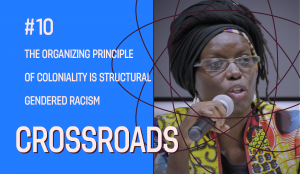 In the latest episode of the podcast series Crossroads, we invited Sylvia Tamale who is a Professor of Law at Makerere University, where she was the first female Dean of the School of Law. She founded and served as a coordinator of the Gender, Law & Sexuality Research Project at the School of Law.
In the latest episode of the podcast series Crossroads, we invited Sylvia Tamale who is a Professor of Law at Makerere University, where she was the first female Dean of the School of Law. She founded and served as a coordinator of the Gender, Law & Sexuality Research Project at the School of Law.
Tamale is a leading African feminist lawyer, scholar, and feminist activist. She has won several awards for her academic work and for defending the human rights of marginalized groups. She is a co-editor of the journal Feminist Africa. She has been a visiting professor at academic institutions around the world; in 2021 she was awarded an Honorary Doctorate of Law by the University of Pretoria, South Africa. Her latest book Decolonization and Afro-Feminism was awarded the 2022 book prize from the Feminist Theory and Gender Section of the International Sociological Association.
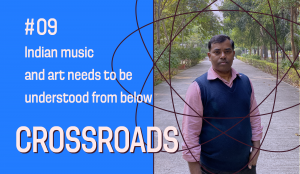 Why can we find hardly any members of the lowest castes neither in Indian music academies nor in the juries of singing talent shows? Why do Dalit musicians write lyrics not only about their caste heroes but even about the Indian Constitution? How do traditional and modern musical styles come together in the struggle against historical injustices? And how do the privileged higher castes respond to all this? In the new episode of the Crossroads podcast series, Indian political scientist Chandraiah Gopani discusses why the caste system remains an important element of Indian society and how inequalities manifest themselves in music.
Why can we find hardly any members of the lowest castes neither in Indian music academies nor in the juries of singing talent shows? Why do Dalit musicians write lyrics not only about their caste heroes but even about the Indian Constitution? How do traditional and modern musical styles come together in the struggle against historical injustices? And how do the privileged higher castes respond to all this? In the new episode of the Crossroads podcast series, Indian political scientist Chandraiah Gopani discusses why the caste system remains an important element of Indian society and how inequalities manifest themselves in music. In the latest episode of the podcast Crossroads we invite dr Kristine Krause. Dr Krause is an anthropologist working at the intersections of political and medical anthropology, interested in subjectivities and health, citizenship and care. At the University of Amsterdam she is a member of the Health, Care and the Body Programme and the Long-term Care and Dementia Research Group. Together with Jeannette Pols she runs the Anthropology of Care Network.
In the latest episode of the podcast Crossroads we invite dr Kristine Krause. Dr Krause is an anthropologist working at the intersections of political and medical anthropology, interested in subjectivities and health, citizenship and care. At the University of Amsterdam she is a member of the Health, Care and the Body Programme and the Long-term Care and Dementia Research Group. Together with Jeannette Pols she runs the Anthropology of Care Network. In the latest episode of the podcast Crossroads we invite professor Brigitte Aulenbacher. She is a Professor of Sociological Theory and Social Analysis, the Head of the Department of the Theory of Society and Social Analyses at the Johannes Kepler University of Linz in Austria and a co-editor of Global Dialogue – the Magazine of the International Sociological Association. In addition, she is the vice-president of the International Karl Polanyi Society.
In the latest episode of the podcast Crossroads we invite professor Brigitte Aulenbacher. She is a Professor of Sociological Theory and Social Analysis, the Head of the Department of the Theory of Society and Social Analyses at the Johannes Kepler University of Linz in Austria and a co-editor of Global Dialogue – the Magazine of the International Sociological Association. In addition, she is the vice-president of the International Karl Polanyi Society. Department of Political Philosophy and Globalization Research, Institute of Philosophy of the Czech Academy of Sciences, invites you to a lecture of Frédéric Vandenberghe Rise and Fall of Jair Messias Bolsonaro.
Department of Political Philosophy and Globalization Research, Institute of Philosophy of the Czech Academy of Sciences, invites you to a lecture of Frédéric Vandenberghe Rise and Fall of Jair Messias Bolsonaro.  The participants of the workshop make use of the vocabulary of civilizational analysis, especially as developed in the work of Johann Arnason, to understand Chinese civilization in comparison with its Western counterpart(s), for instance in the discussion of a shared ‘Axial Age’, the continuities and paradoxes of tradition and modernity, the comparative studies of world empires, and the differing ‘social imaginaries’. The latter term refers to the role of our imagination in articulating our world and our place in it. In this way, society is seen as an institution with a network of imaginary meanings. An important question is what sort of meanings would apply to the Chinese context. To what extent do they differ from comparable Western meanings?
The participants of the workshop make use of the vocabulary of civilizational analysis, especially as developed in the work of Johann Arnason, to understand Chinese civilization in comparison with its Western counterpart(s), for instance in the discussion of a shared ‘Axial Age’, the continuities and paradoxes of tradition and modernity, the comparative studies of world empires, and the differing ‘social imaginaries’. The latter term refers to the role of our imagination in articulating our world and our place in it. In this way, society is seen as an institution with a network of imaginary meanings. An important question is what sort of meanings would apply to the Chinese context. To what extent do they differ from comparable Western meanings?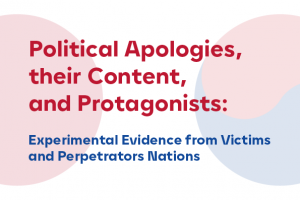 Department of Political Sociology, Institute of Sociology of the Czech Academy of Sciences invites you to the lecture of prof. Roman David (Lingnan University, Hong Kong) Political Apologies, their Content, and Protagonists: Experimental Evidence from Victims and Perpetrators Nations.
Department of Political Sociology, Institute of Sociology of the Czech Academy of Sciences invites you to the lecture of prof. Roman David (Lingnan University, Hong Kong) Political Apologies, their Content, and Protagonists: Experimental Evidence from Victims and Perpetrators Nations.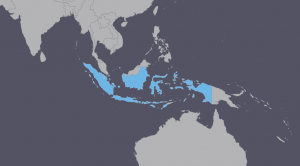 The Oriental Institute of the Czech Academy of Sciences & the Prague Platform for Southeast Asian Studies cordially invite you to an international seminar Indonesia – an Emerging Middle Power and Partner of the EU in the Indo-Pacific.
The Oriental Institute of the Czech Academy of Sciences & the Prague Platform for Southeast Asian Studies cordially invite you to an international seminar Indonesia – an Emerging Middle Power and Partner of the EU in the Indo-Pacific.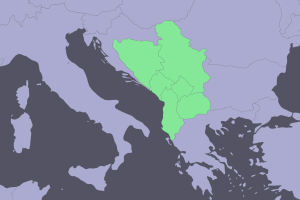
 Institute of Ethnology of the Czech Academy of Sciences and CEFRES – French Research Center in Humanities and Social Sciences cordially invites you to a workshop Plants as/and Humans: Southern Epistemologies and ‘Floral Turn’.
Institute of Ethnology of the Czech Academy of Sciences and CEFRES – French Research Center in Humanities and Social Sciences cordially invites you to a workshop Plants as/and Humans: Southern Epistemologies and ‘Floral Turn’.